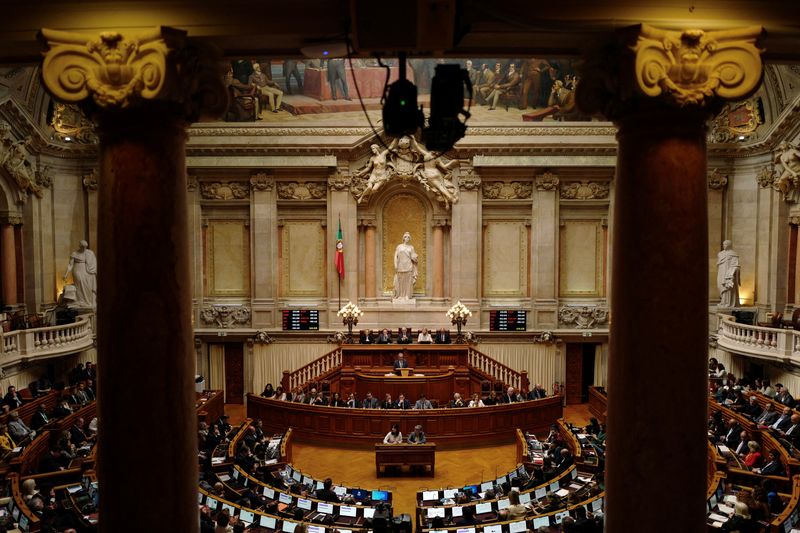By Sergio Goncalves
LISBON (Reuters) -Portugal’s parliament on Thursday gave final approval to the centre-right minority government’s 2026 budget, projecting slightly faster growth and a fourth consecutive surplus despite new tax cuts for companies and low-income earners.

The 230-seat house approved the bill with only 91 votes in favour from the alliance that supports the government because the Socialist Party’s 58 lawmakers abstained.
The remaining 81 lawmakers, including all 60 from the far-right Chega party, voted against.
The government sees the economy growing 2.3% in 2026 after an expected 2.0% expansion this year, slightly above the Bank of Portugal’s 2.2% forecast.
It projects a budget surplus of 0.1% of GDP, down from 0.3% in 2025, even as it expands tax breaks for low-income families and businesses.
The government also expects the public debt ratio, which peaked at over 134% in 2020, to fall to 87.8% of GDP next year from this year’s 90.2%.
Prime Minister Luis Montenegro said that, despite many uncertainties at the European and international levels, Portugal was in a stable financial and economic situation to deliver on the budget’s “demanding” targets.
“We are a reliable country that believes in itself. This is a budget of confidence…and it has all the ingredients to attract more investment, to strengthen job opportunities and to pay better salaries,” he said.
Socialist leader Jose Luis Carneiro said that without his party’s abstention, the country would have faced a “new political crisis with unpredictable consequences.”
Carneiro said the government now has no excuse not to keep the budget balanced or delay crucial investments supported by EU recovery funds.
(Reporting by Sergio Goncalves; editing by Aislinn Laing, Emma Pinedo and Deepa Babington)


